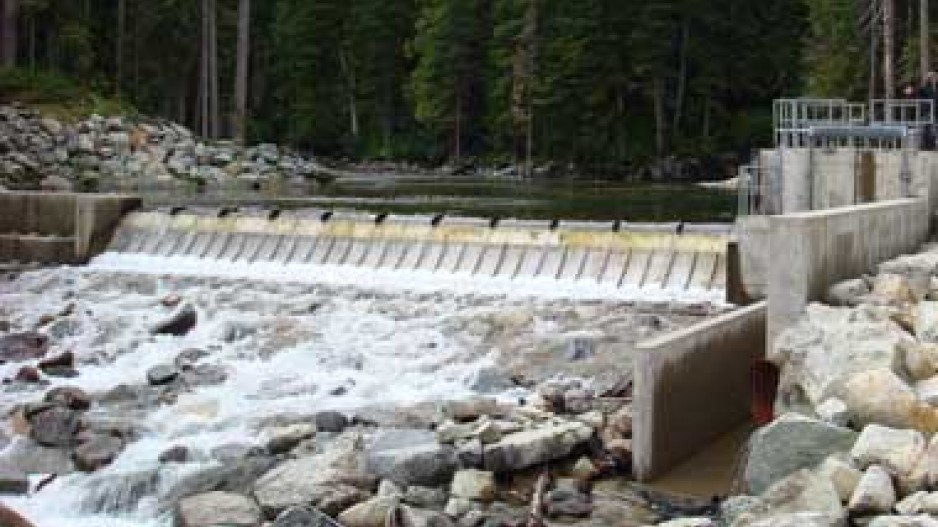A new report co-authored by B.C. energy guru Mark Jaccard supports run-of-river energy as the best way to address B.C.’s growing energy needs, albeit with some provisos.
The Pacific Institute for Climate Solutions report, Scaling up Renewable Electricity in BC, generally supports of the B.C. government’s and BC Hydro’s approach to meeting its future energy needs with renewable energy.
But proponents of other forms of renewable energy, like wind or bioenergy, may be disappointed with the report, because it focuses primarily on run-of-river (RoR) energy.
The report, also co-authored by John Nyobar and Noel Melton of Simon Fraser University’s school of resource management, notes that there are already 38 RoR generating facilities operating B.C. and another 35 new contracts that have been awarded by BC Hydro.
But that’s a fraction of what it could be, asserts the report. It cites BC Hydro’s 2011 Integrated Resource Plan, which estimates RoR could provide 60% of all of B.C.’s energy needs.
However, that would likely have “substantial” impacts on the environment.
“For example, successive modifications to stream flows within a watershed may negatively impact fish productivity,” the report states.
Because of those potential impacts, the report concludes with a recommendation that the B.C. government assess of the cumulative effects of RoR electricity generation.
Despite the fact BC Hydro plans to build the new Site C 1,100-megawatt hydro dam, industrial growth in northern B.C. could require two or three times that much electricity, according to some industry insiders.
B.C. wind-power companies hope to service some of that additional need. (See “Wind wants in on natural gas game” – issue 1168; March 13-19, 2012.)
Asked about the report’s omission of wind and other renewable energy approaches, Jaccard said it’s not because other renewable energy generation approaches aren’t viable.
The report focuses primarily on RoR because it is currently the most dominant form of renewable energy in B.C. and because scaling it up does pose a potential for conflict with things like fisheries and recreation. Addressing those concerns is one of the report’s main focuses.
“Yes, in B.C., run-of-river has been key [recently],” Jaccard told Business in Vancouver.
“But yes, also, it does seem to have very special conflict issues here in that people fear –perhaps justifiably, perhaps not – that it will threaten salmon, pristine areas and key recreational activities like whitewater kayaking. And since water is involved, there are issues of river-basin planning and co-ordination.”




